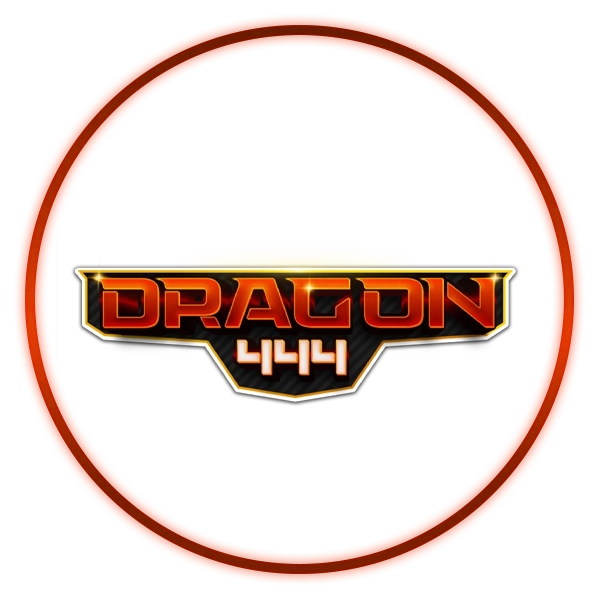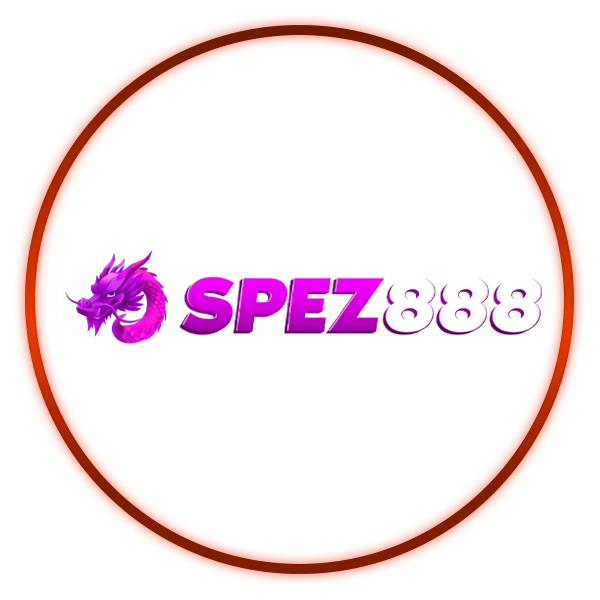



สล็อตเว็บตรง เว็บแท้ ที่เดิมพันได้อย่างมั่นใจ เว็บสล็อตตรง อันดับ 1 ที่น่าเชื่อถือ พร้อมระบบ API แท้ 100% ที่ทันสมัย ให้คุณสามารถเล่นเกมสล็อตได้อย่างราบรื่น ไม่สะดุด ระบบเสถียร ไม่ว่าจะเป็นการ ปั่นสล็อต หรือ ฝาก-ถอนผ่าน ทรูวอเลท โดยไม่มีขั้นต่ำ
สมัครสมาชิก เว็บสล็อต กับเราเพื่อรับประสบการณ์การเล่นเกม สล็อต ที่ดีที่สุด เว็บสล็อตของเรามีเกมสล็อตหลากหลายที่คัดสรรมาอย่างดี เล่นง่าย ได้เงินจริง พร้อมความปลอดภัยในการทำธุรกรรมทุกขั้นตอน อย่าพลาดโอกาสที่จะสนุกสุดมันไปกับการเล่นสล็อตเว็บตรง ที่ดีที่สุด 2024
เว็บสล็อตตรง ไม่มีขั้นต่ำ ให้บริการเดิมพัน สล็อตออนไลน์ โดยฝากถอนผ่าน สล็อตทรูวอเลท ที่นักเดิมพันสามารถเข้าเล่นเกมบน สล็อตเว็บตรง เพื่อทำเงินกำไรกับ เว็บตรงแตกหนัก แตกง่าย เว็บตรง 100% ใหม่ล่าสุดในปี 2024 มาพร้อมระบบที่ทันสมัยเล่นสล็อตได้อย่างปลอดภัย สล็อตเว็บตรงฝากถอน true wallet ไม่มีขั้นต่ำ เป็นตัวเลือกการเดิมพันที่ดีที่สุดในยุคปัจจุบันเพราะเพียง 1 บาทก็สามารถเล่นเกมสล็อตได้ทุกค่ายไม่จำกัด

สล็อตเว็บตรง คือ เว็บที่ให้บริการเกมสล็อตโดยตรงจากผู้ให้บริการหลัก ไม่ผ่านเอเย่นต์ ซึ่งมีความน่าเชื่อถือสูงและปลอดภัยในการเล่น คุณสามารถสมัครสมาชิกสล็อตเว็บตรงได้ง่ายๆ โดยไม่ต้องกังวลเรื่องขั้นต่ำในการฝากหรือถอนเงิน สำหรับสล็อตวอเลท ระบบนี้รองรับการฝาก-ถอนผ่านแอปพลิเคชันวอเลท ที่สะดวกและรวดเร็ว พร้อมทั้งมีโบนัสสูงที่จะช่วยให้คุณได้รับผลตอบแทนเต็มที่ 100% นอกจากนี้ เว็บสล็อตวอเลท ยังมีโปรโมชั่นและข้อเสนอพิเศษมากมายสำหรับผู้เล่นใหม่และผู้เล่นเก่า หากคุณกำลังมองหาเว็บสล็อตที่ดี เป็น เว็บสล็อต 100% แนะนำสำหรับการเล่นสล็อตอย่างปลอดภัยและสนุก เว็บคาสิโน นี้ตอบโจทย์คุณได้อย่างแน่นอน
สล็อต เว็บตรงไม่ผ่านเอเย่นต์ไม่มีขั้นต่ำ ได้คัดสรรเกมสล็อตแตกง่าย ปั่นสล็อตยังไงก็แตก ซึ่งเป็นเกมสล็อตลิขสิทธิ์แท้ 100% ที่นำเข้ามาจากต่างประเทศ มีความปลอดภัยและมีความยุติธรรมในการเดิมพัน บอกได้เลยว่าเป็นโอกาสที่ดีที่สุดของนักเดิมพันทุกคน ที่เข้ามาเล่นเว็บตรงสล็อตแห่งนี้ สำหรับเหตุผลหลักที่ต้องเดิมพันกับสล็อตเว็บตรง 100%ไม่ผ่านเอเย่นต์ มีข้อดีมากมายที่มือใหม่และมือเก่าต้องศึกษาดังนี้
สล็อตเว็บตรง ไม่ผ่านเอเย่นต์ มีความน่าเชื่อถือสูง ทำให้ผู้เล่นมั่นใจได้ว่าการเล่นจะปลอดภัย100% เล่นเกมได้อย่างมั่นใจ ด้วยเว็บไซต์ที่มีมาตรฐานระบบดับสากล เมื่อชนะเดิมพันสามารถถอนเงินได้ทุกบาท ด้วยระบบ สล็อตวอเลท สุดทันสมัย ยอดนิยม ถอนได้จริงโดยไม่ติดเงื่อนไข ไม่ติดเทริ์นโอเวอร์ เว็บตรง เดิมพันได้อย่างไร้กังวล มั่นใจได้ในทุกการเดิมพัน
เว็บสล็อต ที่มีคุณภาพ ผู้เล่นสามารถเริ่มต้นการเดิมพันได้โดยไม่ต้องกังวลเรื่องเงินฝากขั้นต่ำ สล็อตเว็บตรง ด้วยความที่เป็นเว็บสล็อตเว็บตรงค่ายใหญ่ จึงตอบโจทย์ทุกความต้องการของการเดิมพัน รองรับฝากถอน true wallet ไม่มีขั้นต่ำ ถึงไม่มีบัญชีธนาคารก็เล่นเกมได้ไม่มีปัญหา
เว็บพนันออนไลน์ เว็บแท้สล็อต รองรับระบบฝากถอนออโต้ ทำให้การทำธุรกรรมการเงินมีความรวดเร็ว ไม่มีขั้นตอนยุ่งยาก หรือการรอคอยการอนุมัติจากคนกลาง สล็อตเว็บตรงฝากถอน true wallet ไม่มีขั้นต่ำ ด้วยระบบการฝากถอนอัตโนมัติที่มีความทันสมัย ทำให้เล่นเกมสล็อตได้อย่างต่อเนื่อง ไม่ต้องรอนาน
สมัครสมาชิกเล่นเกมสล็อต เพื่อการเดิมพันกับ สล็อตเว็บตรง ไม่เสียค่าธรรมเนียมใดๆ ทุกขั้นตอนในเว็บแห่งนี้ฟรี ตั้งแต่ขั้นตอนการสมัครไปจนถึงขั้นตอนในการถอนเงิน จะไม่มีการหักค่านายหน้าเหมือนเว็บผ่านเอเย่นต์ ทำให้ผู้เล่นได้รับเต็มจำนวนจากการเดิมพันครบทุกบาท
สล็อตออนไลน์ แท้ เป็นระบบเกมที่เสถียร และบริการลูกค้าอย่างมืออาชีพ ตลอด 24 ชั่วโมง ตอบสนองความต้องการของผู้เล่นได้ทันที มีการจัดเก็บข้อมูลด้วยระบบที่ทันสมัยใหม่ล่าสุด รับประกันไม่มีการเผยแพร่ข้อมูลของลูกค้าแก่บุคคลที่ 3 อย่างแน่นอน จึงมั่นใจได้ว่าข้อมูลของท่านจะมีความเป็นส่วนตัว บน สล็อตเว็บตรงแท้ไม่ผ่านเอเย่นต์
เกมสล็อตออนไลน์ ใหม่ล่าสุดในปี 2024 ที่นำมาบริการบน เว็บสล็อต ที่ดีที่สุดในประเทศไทย ซึ่งได้รับความนิยมและมาแรงเป็นอันดับ 1 ในยุคปัจจุบัน มาพร้อมกับระบบออโต้ที่ฝากถอนผ่าน วอเลท สุดทันสมัย รวมทั้งได้คัดสรรเกมสล็อตแตกง่ายส่งตรง จากต่างประเทศ สล็อตค่ายนอก ที่ได้ใบรับรองอย่างถูกต้อง สล็อตเว็บตรง แจกแจ็กพอตแตกดีที่มีมาอัพเดทให้สมาชิกอย่างต่อเนื่อง เข้าไปเล่นเกมได้มากกว่า 1,000 เกม เว็บสล็อตตรง ครบวงจรที่คุณห้ามพลาด
สล็อตเว็บตรง ที่ดีที่สุด ได้มีการเชื่อมต่อกับค่ายเกมโดยตรงจากต่างประเทศ ใช้ระบบ API แท้ 100% การันตีเล่นเกมสล็อตออนไลน์ แตกง่าย ได้เงินจริง เล่นเกมสล๊อตได้ไม่มีสะดุด เกมไม่กระตุก ระบบเสถียรลื่นไหล ไม่เสียอารมณ์อย่างแน่นอน ทั้งนี้ยังเป็นเว็บแท้ที่มีคุณภาพสูงได้ระดับมาตราฐาน เว็บสล็อตทรูวอเลท ถอนได้ง่ายและปลอดภัย จ่ายเงินเมื่อชนะเกมอย่างยุติธรรมและโปร่งใส ทำให้การพนันออนไลน์เป็นการหารายได้ที่ดีที่สุดแล้วในปัจจุบัน บน เว็บตรงสล็อต ที่เล่นได้ง่ายและได้รับความไว้วางใจมากที่สุด สล็อตเว็บตรง รับประกันความปลอดภัยเมื่อสมัครสมาชิกกับเรา

สล็อตทรูวอเลท เดิมพันได้ ไม่มีขั้นต่ำ ได้รวบรวม สล็อตเว็บตรง แตกง่าย บริการให้สมาชิกทุกท่านได้เล่นอย่างไม่จำกัด เล่นสล็อตได้ทุกค่ายอย่างปลอดภัย และได้มีการนำระบบฝากถอน สล็อตเว็บตรงฝาก ถอน true wallet ไม่มีขั้นต่ํา เพื่อให้สมาชิกทุกคนใช้งานฝากถอนได้ง่าย สะดวก และเพิ่มความมั่นใจได้ 100% เพราะเรา เป็น เว็บสล็อตถูกกฎหมาย เล่นเกมสล็อตที่เชื่อถือได้ ถอนเงินได้จริง มีใบอนุญาตอย่างถูกต้อง เป็น สล็อตเว็บตรง100 ต่างประเทศ ที่ไม่เคยมีประวัติโกงและฝากถอนได้ไม่มีขั้นต่ำ
สล็อตเว็บตรง ได้คัดสรรเกมสล็อตแตกง่ายมีอัตราชนะสูงค่า rtp 96% ขึ้นไป เพื่อเพิ่มโอกาสในการชนะเดิมพัน บริการฝากถอนไม่มีขั้นต่ำด้วยเว็บสล็อตวอเลท สุดทันสมัย ล่าสุด เว็บสล็อตอันดับ 1 ที่คุณห้ามพลาดเล่นเกมสล็อต PG เว็บตรง แตกง่ายได้อย่างปลอดภัย ยังมีโปรโมชั่นแจกแถมสมาชิกไม่อั้น ทั้งนี้สำหรับ เว็บตรง ไม่มีขั้นต่ำ ไม่ผ่านเอเย่นต์ การันตี เกมสล็อตอัพเดทใหม่ อย่างต่อเนื่อง ซึ่งวันนี้นำเสนอ 6 ค่ายยอดนิยม ที่สายปั่นห้ามพลาด

dragon 444 การันตี เว็บสล็อต เกมแตกง่าย จากค่ายดังยอดนิยม ปั่นสล็อตเว็บตรงได้อย่างสบายใจ เมื่อชนะเกมได้เงินจริงแน่นอน รวมถึงมีโปรโมชั่นให้เลือกอย่างจุใจ คุ้มค่ากับการสมัครสมาชิก มีความปลอดภัย 100% เพราะเป็นเว็บตรงแท้ที่เชื่อถือได้และมีความมั่นคง อันดับ 1

เว็บสล็อตใหม่ล่าสุดปี 2024 คัดสรรเกมสล็อตที่ดีที่สุด มีเกมให้เลือกเล่นมากกว่า 1000 เกมจากค่ายยอดนิยมยิงสัญญาณตรงจากต่างประเทศ รองรับการฝากถอนด้วย สล็อตทรูวอเลท ไม่มีขั้นต่ำ ปั่นสล็อตได้ไม่มีจำกัด สล็อตเว็บตรง แจกแจ็คพอตอย่างไม่อั้น ให้โบนัสสมาชิกทั้งรายเก่าและรายใหม่อย่างต่อเนื่อง สมัครเว็บตรงแท้มีแต่ได้กับได้

เว็บสล็อต ล่าสุด เป็น เว็บตรงแท้ ไม่ผ่านเอเย่นต์ เป็นเว็บที่มอบประสบการณ์การเล่นสล็อตที่ดีที่สุด ให้กับผู้เล่นได้อย่างปลอดภัย สล็อตเว็บตรง มีเกมจากค่าย pg slot ที่เล่นยังไงก็แตกง่าย รวมถึงเกมจากค่ายอื่นๆอีกเพียบ สำหรับการถอนเงินสามารถถอนได้จริ งไม่ติดเทิร์น และระบบหลังบ้านยังมีทีม admin ดูแลตลอด 24 ชั่วโมง ถึงจะเป็นเว็บใหม่มาแรงแต่ SPEZ888 เว็บสล็อตตรงก็ไม่เคยทำให้ผิดหวัง

เว็บสล็อตอันดับ 1 ที่ได้รับการการันตีจากผู้เล่นสล็อตเป็นจำนวนมาก สล็อตเว็บตรง ฝากถอน ไม่มีขั้นต่ำ มีการคัดเลือกเกมสล็อตคุณภาพสูงได้มาตรฐานระดับสากลจากต่างประเทศ มาพร้อมฟิวเจอร์พิเศษ ให้เลือกเล่นได้อย่างไม่อั้น รวมทั้งโปรโมชั่นที่แจกให้กับผู้สมัครเพื่อการทำกำไรกับเกมสล็อตเว็บตรง ที่ได้เงินจริง

เว็บสล็อตเว็บตรงค่ายใหญ่ มาพร้อมโหมด ทดลองเล่นสล็อต ได้ฟรีทุกค่าย สามารถใช้บริการ สล็อตทดลอง ได้ก่อนจะลงเดิมพันจริง เพื่อฝึกความชำนาญและทำให้เกิดความเชื่อมั่นในตัวของผู้เล่น เว็บตรงสล็อต ได้นำระบบทดลองเล่นสล็อต pgที่มีความปลอดภัยมาบริการลูกค้าอย่างทั่วถึง เว็บสล็อต นี้จึงเป็นทางเลือกที่ดีที่สุดของนักเดิมพันมือใหม่

เว็บสล็อต wallet ฝากถอนไม่มีขั้นต่ำ เริ่มวางเบทเริ่มต้นได้ที่ 1 บาท เล่นสล็อตเว็บตรงที่มีความทันสมัยและมีความปลอดภัยสูง เว็บแท้สล็อต สร้างความประทับใจไม่รู้ลืมให้กับผู้เล่นสล็อตกับเว็บนี้อย่างแน่นอน เพราะทุกระบบเป็นออโต้ ที่มีการพัฒนาอย่างต่อเนื่อง เว็บตรง สล็อตฝากถอน ไม่มี ขั้นต่ำ 1 บาทก็ ถอนได้แน่นอน

สมัครสล็อตเว็บตรงที่ ได้เงินจริงแน่นอน เว็บสล็อตออนไลน์ได้รองรับระบบ auto สมัครเว็บตรงวันนี้ทำรายการง่ายด้วยตนเองไม่กี่ขั้นตอน เพราะเว็บสล็อตออนไลน์ได้มาตรฐานระดับสากล มีการรองรับภาษาไทยและภาษาอื่นๆอีกมากกว่า 5 ภาษา ทั้งนี้ยังมีโบนัสสล็อตแจกให้สมาชิกอย่างต่อเนื่อง สามารถนำไปใช้กับโหมด ทดลองเล่นสล็อต ได้ทุกค่าย แถมฟรีสปินไม่อั้น สำหรับใครที่กำลังมองหา สล็อตเว็บตรง เว็บสล็อต ที่ดีที่สุด สมัครเว็บสล็อตทรูวอลเล็ทได้แล้ววันนี้ ไม่เสียค่าธรรมเนียมเล่นสล๊อตได้ฟรีทุกค่ายยอดนิยม
โบนัสสล็อต แจกฟรีสำหรับสมาชิกรายใหม่ เว็บตรงแจกให้เป็นโปรโมชั่นแก่สมาชิกอย่างต่อเนื่อง บน เว็บสล็อตอันดับ 1 ปั่นสล็อตแตกหนัก แตกง่าย ได้ไม่จำกัด สมัครสมาชิกสล็อตเว็บตรงวันนี้เพื่อเล่นเกมสล็อตแมชชีนยอดนิยม และรับสิทธิพิเศษโบนัสสล็อต ฝากฝาก 100 รับ 100 โบนัสที่ใช้ได้จริง 100% ปั่นสล็อต pg บน slot online ถอนเงินได้ผ่าน slot wallet เว็บตรงแท้ อันดับ 1 มีคุณภาพสูงที่ใครๆก็ต่างมองหาเว็บตรงที่จริงใจในการเดิมพัน
สล็อตเว็บตรง ไม่ผ่านเอเย่นต์ เป็นช่องทางการทำเงิน ที่ดีที่สุด อยากให้คุณเข้ามาสมัครสมาชิกเล่นเกมสล็อตลิขสิทธิ์แท้ ที่เข้ามาทำเงินได้อย่างไม่อั้น และมีความมั่นใจในการเล่นเกมสล็อตได้เป็นอย่างดี เว็บสล็อตแท้ให้บริการเกมสล็อตแตกง่าย แตกหนัก เป็นเกมที่มีคุณภาพจากค่าย slot ชั้นนำจากต่างประเทศ รวมถึงยังมีการแจกโบนัสและมีโปรโมชั่นมากมายสำหรับสมาชิกทุกท่าน เว็บสล็อต True wallet ถอนได้ไม่มีขั้นต่ำ เริ่มวางเบทได้ที่ 1 บาท บน สล็อตเว็บตรงแท้ ที่ใครๆก็ชื่นชอบซึ่งได้คัดมา 6 ค่ายเกมที่แตกง่ายดังนี้

PG Slot คือ ค่ายเกมผู้พัฒนาเกมสล็อตออนไลน์ที่ได้รับความนิยมอย่างมากในหลายประเทศ โดยเฉพาะในเอเชีย ซึ่ง PG Slot เป็นที่รู้จักจากการนำเสนอเกมที่มีกราฟิกสวยงาม มีฟีเจอร์ที่น่าสนใจ ทางเข้าPG มีความหลากหลาย เกมของ พีจีสล็อต สามารถเล่นได้ทั้งบนคอมพิวเตอร์และอุปกรณ์มือถือ ซึ่งเหมาะสำหรับผู้เล่นที่ชอบเล่นเกมบนมือถือ รวมทั้งเกมที่เหมาะสมกับทั้งผู้เล่นมือใหม่และผู้เล่นที่มีประสบการณ์ สล็อต pg เว็บตรง แตกหนัก การันตีได้เงินจริง

Pragmatic Play เป็นสล็อตออนไลน์ เชื่อถือได้ มีเกมสล็อตที่หลากหลายทั้งในแง่ของธีม รูปแบบการเล่น และฟีเจอร์พิเศษ เกมสล็อตของ Pragmatic Play มักจะมีฟีเจอร์โบนัสที่น่าสนใจ เช่น ฟรีสปิน โบนัสเกม และฟีเจอร์การขยายสัญลักษณ์ที่ช่วยเพิ่มโอกาสในการชนะ เล่นเกมสล็อต ได้ง่าย รองรับทุกระบบปฏิบัติการ iOS, Android, และ Windows สะดวกและปลอดภัย

Spadegaming เป็นที่รู้จักดีในวงการเกมสล็อตออนไลน์ เว็บสล็อต ยอดนิยม อันดับ 1 โดยเฉพาะเกมสล็อตที่มีธีมที่หลากหลายและน่าสนใจ ไม่ว่าจะเป็นเกมสล็อตที่มีธีมจากตำนานหรือวัฒนธรรมเอเชีย เกมสล็อตค่ายนี้พร้อมกับกราฟิกที่สดใสและสัญลักษณ์ที่มีเอกลักษณ์ เป็นค่ายเกมที่ได้รับความนิยมสูงในวงการคาสิโนออนไลน์ โดยเฉพาะในเอเชีย โดยเกมสล็อตเว็บตรง ของค่ายนี้มักจะมาพร้อมกับ ทดลองเล่นเกมสล็อต ฟรีสปิน ไม่เด้ง ไม่สะดุด ทำให้เล่นมีความสนุกสนาน เพลิดเพลินไปกับการเล่นเกมได้ไม่รู้สึกเบื่อหน่าย

Joker Gaming เป็นค่ายเกมคาสิโนออนไลน์ที่มีชื่อเสียงในวงการ สล็อตออนไลน์และเกมคาสิโนสด ด้วยการออกแบบเกมที่น่าสนใจ ฟีเจอร์พิเศษที่ช่วยเพิ่มโอกาสในการชนะ ฝากถอนสล็อตวอเลท ออนไลน์ ที่ดีที่สุด และมีความสะดวกในการเล่นบนมือถือ Joker Gaming จึงเป็นหนึ่งในค่ายเกมที่ได้รับความนิยมสูงในวงการคาสิโนออนไลน์ แจก สล็อตฟรีสปินและ โบนัสเกมสล็อต ค่ายนี้จึงเป็นที่ชื่นชอบของผู้เล่นทั่วโลก แถมยังมีการอัพเดทเกมสล็อตอย่างต่อเนื่องอีกด้วย

Microgaming เป็นค่ายที่มีชื่อเสียงในวงการเกมคาสิโนออนไลน์มายาวนาน โดยเฉพาะในด้านเกมสล็อตและเกมคาสิโนสด บริการ ค่ายที่มีเกมสล็อตออนไลน์มากมายในรูปแบบต่างๆ ตั้งแต่เกม 3 วงล้อ, 5 วงล้อ ไปจนถึงสล็อตเว็บตรงที่มีรางวัลแจ็คพอตก้อนโต ซึ่งได้รับความนิยมสูงจากผู้เล่นเกมสล็อตแตกง่าย แตกจริง มีเกมยอดนิยมมากมาย เช่น Thunderstruck II, Immortal Romance, Mega Moolah เป็นต้น

Red Tiger Gaming คือ ค่ายผู้พัฒนาเกมคาสิโนออนไลน์ที่มีชื่อเสียงในด้านการออกแบบ สล็อตออนไลน์ ที่ทันสมัย ใหม่ล่าสุด และเต็มไปด้วยฟีเจอร์ที่น่าสนใจ ซึ่งได้รับความนิยมในวงการเกมคาสิโนออนไลน์ทั่วโลก โดยเฉพาะในตลาดเอเชียและยุโรป Red Tiger Gaming ก่อตั้งขึ้นในปี 2014 และได้กลายเป็นหนึ่งในผู้พัฒนาเกมที่มีอิทธิพลในอุตสาหกรรม iGaming ภายในเวลาไม่กี่ปี ค่ายนี้มีเกมที่ได้รับความนิยมอย่างมากในหมู่นักพนันออนไลน์ เพราะสล็อตเว็บตรงเชื่อถือได้ มีความปลอดภัยในการเล่นสล็อต รวมถึงเกมสล็อตที่มีฟีเจอร์และกราฟิกที่น่าตื่นเต้น
สล็อตเว็บตรง มีบริการ ทดลองเล่นสล็อตได้ฟรี สำหรับผู้ที่ให้ความสนใจแต่ไม่เคยเล่นสล็อตมาก่อน สามารถใช้ ทดลองเล่นสล็อตได้ฟรีทุกค่าย ซื้อฟรีสปินได้เล่นสล็อตไม่เด้งไม่สะดุดสามารถเล่นสล็อตได้โดยที่ไม่ต้องสมัครสมาชิกไม่ต้องฝากยอดฝากถอน true wallet ไม่มีขั้นต่ำ ทดลองเล่นได้ฟรี สล็อตแตกหนัก มีบริการสำหรับทุกท่านที่ให้ความสนใจ
เว็บ สล็อตทดลอง สามารถใช้ได้ทุกค่ายไม่ว่าจะเป็น ทดลองเล่นสล็อต pg สปินฟรีหรือค่ายยอดนิยมอื่นๆอีกมากมาย โหมดเล่นสล็อตทดลองมาพร้อม โปรโมชั่นสล็อต สามารถถอนเงินได้ผ่าน สล็อตวอเลท ที่ดีที่สุด ฝากถอนง่ายไม่มีขั้น สมัครสล็อตเว็บตรง เพื่อเข้ามาทำกำไรได้อย่างมหาศาล เล่นสล็อตฟรี ถอนได้ ถอนง่าย จ่ายไว อันดับ 1

สล็อต เว็บตรง ดำเนินงานโดยไม่ผ่านเอเย่นต์ ไม่มีคนกลาง เป็นเว็บไซต์ที่ได้มาตรฐานของคาสิโนออนไลน์ที่ให้บริการครบวงจรไม่ว่าจะเป็นเกมสล็อต คาสิโนสด บาคาร่า และอื่นๆอีกมากมาย ให้นักเดิมพันทุกคนเข้ามาทำกำไรได้อย่างมหาศาล slot เว็บตรง ไม่ผ่านเอเย่นต์ ไม่มีขั้นต่ำ บริการเกมสล็อตแตกง่ายให้เล่นกันอย่างมากมาย เว็บของเราได้รับความยอดนิยมเป็นอย่างมากในบรรดาสายปั่น และมีข้อดีอีกหลายข้อที่ เว็บสล็อตของเราได้สรุปมาโดยมีข้อดีดังนี้

เว็บตรงสล็อต เลือกปั่นสล็อตได้จากค่ายเกมชั้นนำที่ได้มาตรฐาน เกมสล็อตระดับโลกส่งตรงจากต่างประเทศ ได้ใบรับรองที่ถูกต้อง สล็อตเว็บตรง มีการพัฒนาธีมและกราฟิกที่สวยงาม สมบูรณ์ พร้อมเอฟเฟคเสียงที่ตื่นเต้นเร้าใจ แถมยังมีฟีเจอร์ของเกมสล็อตที่ให้ผู้เล่นได้ประสบการณ์ที่สนุกสุดเหวี่ยงไม่มีความน่าเบื่อ บอกได้เลยว่าเล่นสล๊อตได้ทุกค่ายอย่างจุใจ
สล็อตเว็บตรง ฝากถอนไม่มีขั้นต่ำ true wallet ทุกขั้นตอนเป็นระบบออโต้ ซึ่งทำให้การทำธุรกรรมในการฝากถอนเป็นไปอย่างรวดเร็วไม่ต้องรออนุมัติจาก admin หรือตัวแทนของเว็บ ทั้งนี้ยังลดเวลาแต่เพิ่มรวดเร็ว ความสะดวก ให้กับผู้เล่นได้เป็นอย่างดีสามารถเล่นเกมได้ทันที ภายใน 3 วินาที เมื่อฝากเงินเสร็จ สล็อต ฝาก ถอน true wallet ไม่มี บัญชีธนาคาร เล่นได้ทันทีไม่ต้องไปธนาคารให้ยุ่งยาก
เว็บสล็อตวอลเลท ฝาก ถอน true wallet แจกโปรโมชั่นให้กับสมาชิกทุกคนอย่างเท่าเทียม ไม่ว่าจะเป็นโปรสมาชิกใหม่ โปรฝากเงินรายวัน โปรวันเกิด หรือทายผลวันหวยออก สามารถรับโปรโมชั่นได้โดยตรงจาก เว็บตรง 100% สามารถนำเงินที่ได้จากโปรโมชั่นไปเล่นเกม สล็อตแตกหนัก แตกง่าย ได้ทุกค่าย สล็อตเว็บตรง รับรองได้เงินจริงแน่นอน
สล็อตเว็บตรง สามารถเล่นเกมได้ทุกอุปกรณ์ไม่ว่าจะเป็นคอมพิวเตอร์ PC โน๊ตบุ๊ค มือถือ แท็บเล็ต ก็สามารถรองรับการเล่นได้ไม่จำกัดจำนวนครั้ง หรือจำกัดค่ายเกม เพียงเชื่อมต่อสัญญาณอินเตอร์เน็ต เพียงแค่นี้ก็สามารถเล่นเกมสล็อตและฝากถอนยอด ผ่าน วอเลท ได้อย่างง่ายดาย เว็บตรงแตกง่าย ยอดนิยม รองรับการเล่นสล๊อตได้ทุกอุปกรณ์ 100%
เว็บสล็อต อันดับ 1 เว็บตรง สล็อตฝากถอน ไม่มี ขั้นต่ำ 1 บาทก็ ถอนได้ สล็อตเว็บตรง ให้บริการเว็บสล็อตไม่ผ่านเอเย่นต์ที่เชื่อถือได้ ปลอดภัยทุกการเดิมพัน เว็บสล็อต ใหม่ล่าสุด จากต่างประเทศ เว็บสล็อต วอลเลท ไม่มีขั้นต่ำ เล่นสล็อตได้ง่ายแม้ไม่มีบัญชีธนาคารก็เล่นได้ทันที ไม่ต้องเสียเวลาในการดำเนินการ เพราะเว็บสล็อต มีระบบออโต้ ที่ใช้งานง่ายและคุ้มค่าแก่การลงทุน รับรองเมื่อสมัครสมาชิกสล็อตเว็บตรง เข้ามาจะพบกับ เว็บพนันauto ที่มีความสะดวกสบาย มาพร้อมกับเงินกำไรที่ถอนได้จริง
สล็อตเว็บตรง เปิดโอกาสให้ผู้ที่ชื่นชอบการปั่น เข้ามาสัมผัสการเล่นเกม สล็อตแตกง่ายไม่ผ่านเอเย่นต์ ไม่มีขั้นต่ำ เล่นง่ายไม่ต้องดาวน์โหลดแอพพลิเคชั่น เว็บสล็อตตรงค่ายใหญ่ จากต่างประเทศ มีระบบการฝากถอนผ่าน True wallet ที่อำนวยความสะดวกสบายให้แก่ผู้เล่นเป็นอย่างดี สล็อตเว็บตรง ไม่ผ่านเอเย่นต์ สำหรับใครที่ให้ความสนใจและต้องการสมัครสมาชิกสามารถ สมัครเว็บตรงสล็อต เข้ามาเลย โดยไม่เสียค่าใช้จ่ายหรือไม่มีค่าธรรมเนียม ทั้งนี้ยังสามารถรับ โปรโมชั่น พิเศษสำหรับสมาชิกรายใหม่ได้ทันที
เว็บตรงแท้ 100% ของเรามีทีมงานและ admin คอยบริการสมาชิก ตลอด 24 ชั่วโมง ไม่มีวันหยุด ไม่ว่าจะเป็นการแก้ปัญหาหรือคอยให้คำแนะนำ สามารถปรึกษาได้ทุกเรื่องตลอดเวลา และเมื่อท่านเจอปัญหาทีมงานของเราจะรีบแก้ปัญหาให้โดยทันทีไม่ต้องรอนาน เพราะค่ายสล็อตของเราเป็น สล็อตเว็บตรง ที่มีมาตรฐาน สามารถให้ข้อมูลและให้ความช่วยเหลือลูกค้าได้ตลอดเวลา จึงมั่นใจได้ว่า สมัครสมาชิกเว็บสล็อต เข้ามาแล้วมีแต่ได้กับได้ ไม่ถูกโกง รับประกันความปลอดภัยแน่นอน 100%
ตอบ :เว็บสล็อตแท้ สามารถใช้โหมดทดลองเล่นสล็อตได้ทุกค่ายไม่ว่าจะเป็นค่าย PG SLOT , PRAGMATIC PLAY, JOKER GAMING หรือค่ายอื่นๆก็เล่นได้เช่นเดียวกัน เพียงคลิกเข้าหน้าเว็บของเราเท่านั้น เล่นสล็อตทดลองเล่นฟรีทุกค่าย ได้ง่ายได้แม้ยังไม่สมัครสมาชิก
สล็อตเว็บตรง ที่ไม่ผ่านเอเย่นต์ สามารถทำการฝากถอนผ่าน สล็อตวอเลท ได้ทั้งหมด เพื่อเพิ่มความสะดวกสบาย รวดเร็ว และความแม่นยำในการทำธุรกรรมฝากถอน บน เว็บสล็อตตรง ที่ดีที่สุด
ตอบ :สมัครสมาชิก บน สล็อต เว็บตรง ไม่จำเป็นต้องมีบัญชีธนาคารก็เล่นเกมได้ เพราะเว็บตรงได้นำเอา วอเลท เข้ามาบริการการฝากถอน จึงทำให้การฝากถอนเป็นระบบออโต้ ใช้งานง่าย บัญชีธนาคารก็ไม่จำเป็นอีกต่อไป